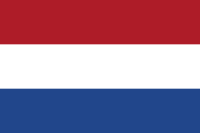
Photo from wikipedia
Policymakers are embracing the circular economy (CE) as a means of harmonizing environmental and economic interactions, including at the urban level. Whilst numerous studies cover CE practices, few papers cover… Click to show full abstract
Policymakers are embracing the circular economy (CE) as a means of harmonizing environmental and economic interactions, including at the urban level. Whilst numerous studies cover CE practices, few papers cover how it is being implemented and how cities (hotspots of material consumption, waste generation and disconnected pollution) are transitioning from linear-like processing of materials to a cyclical form. This paper addresses (a) how is the CE being applied and driven at the city level, and (b) what are the emerging transitional barriers and limits of such strategies? It compares the case studies of Amsterdam, Utrecht and The Hague, especially as the Netherlands is considered a CE frontrunner. Utilising document analysis of key national and city level strategies and 67 interviews, we show that the key municipal instruments include public procurement, zoning laws, capacity building and knowledge exchange and these can mostly be applied to municipal purchases and the construction sector. Practitioners perceived the initial barriers as knowledge of suitable technologies and deployment opportunities, the low quality of waste streams in comparison to the low costs of high-quality virgin inputs, the difficulty in addressing these issues at the urban scale, and the linear mindset of relevant actors. We argue that core limitations for these strategies and city level circular transitions include the instrumental scope and capacity to influence value chains and businesses, in addition to an overt focus on end-of-pipe actions as opposed to reducing and reusing resources. This research suggests that multi-level policy integration is needed to alter value chains to enable a greater reduction in material inputs and changes in actor behaviour.
Journal Title: Journal of Cleaner Production
Year Published: 2019
Link to full text (if available)
Share on Social Media: Sign Up to like & get
recommendations!